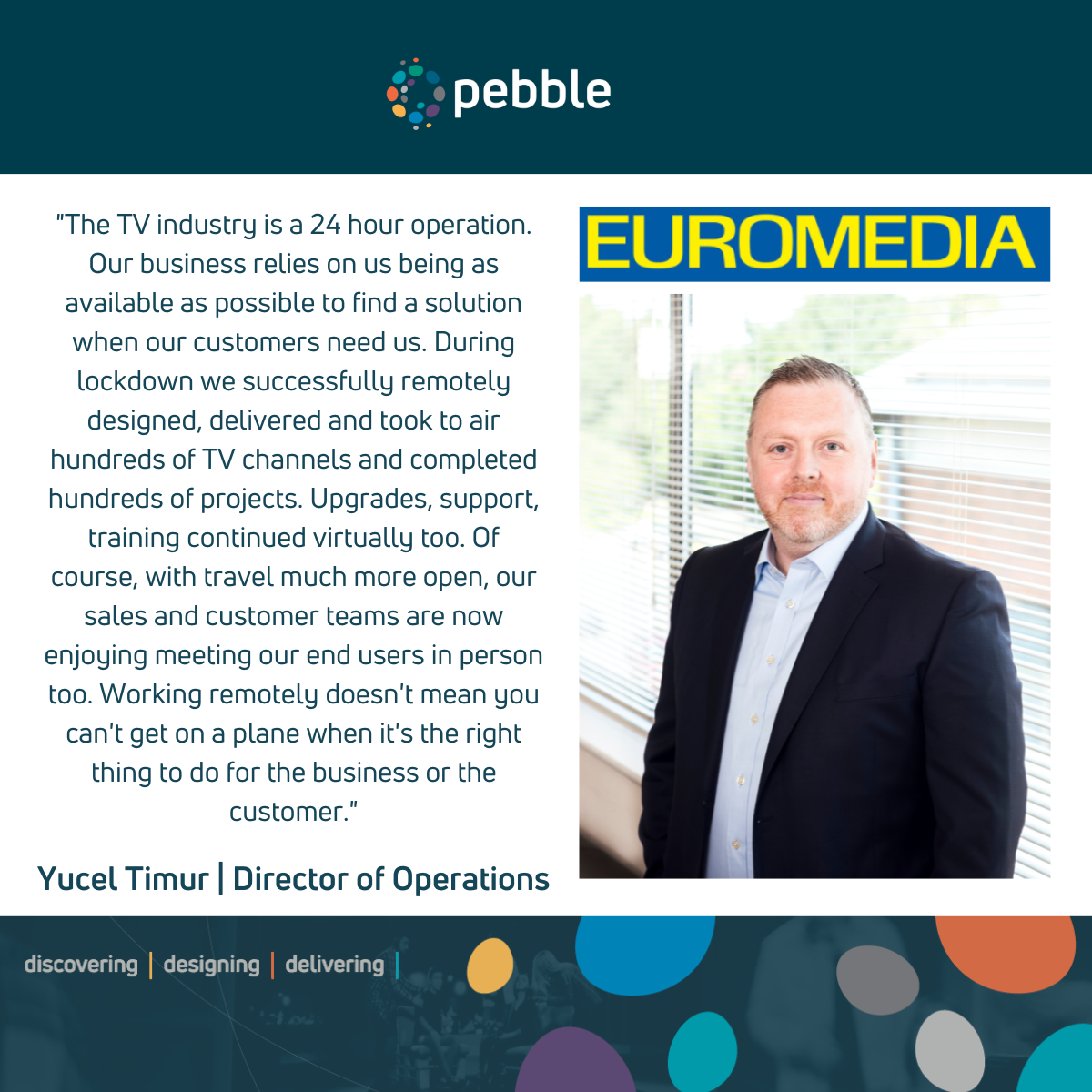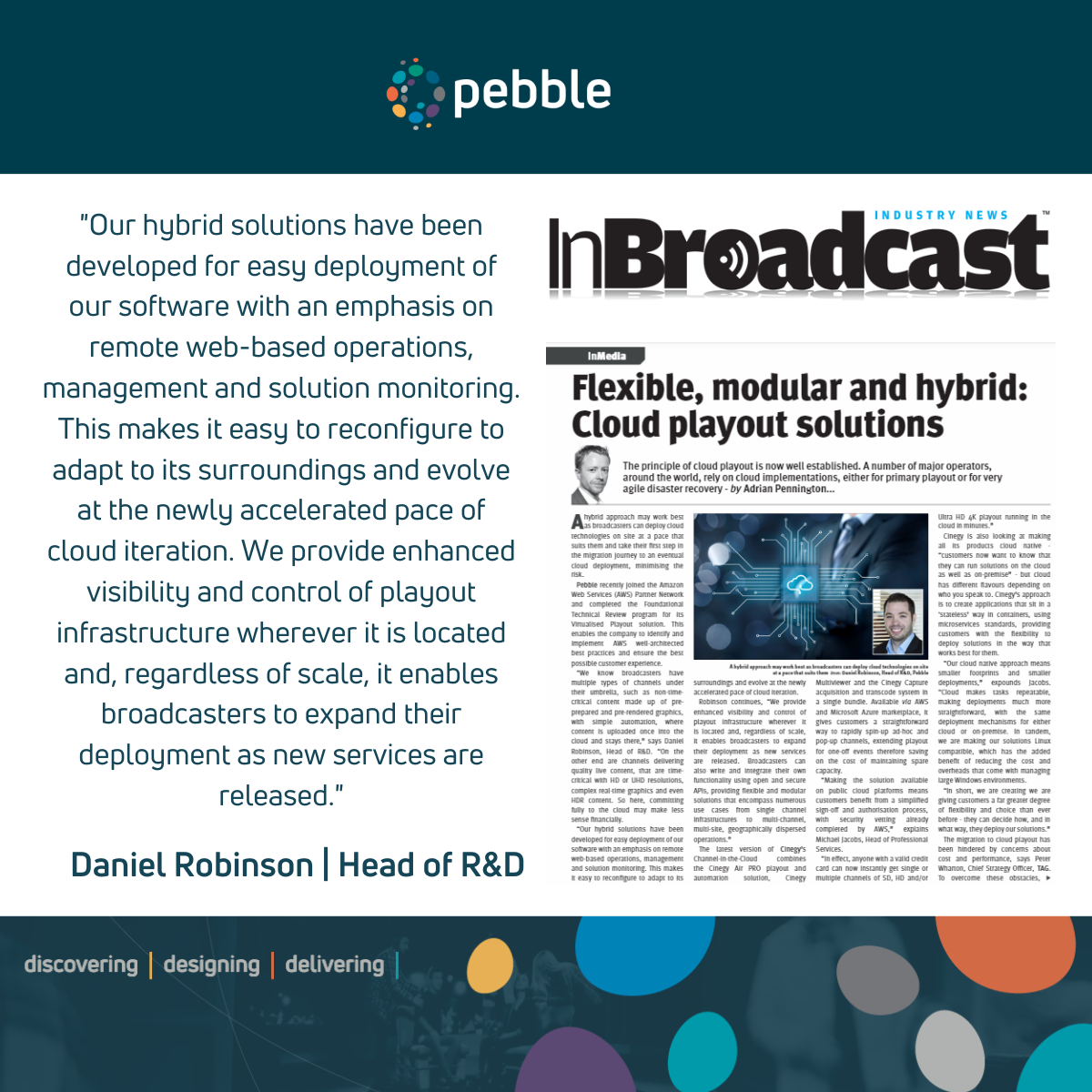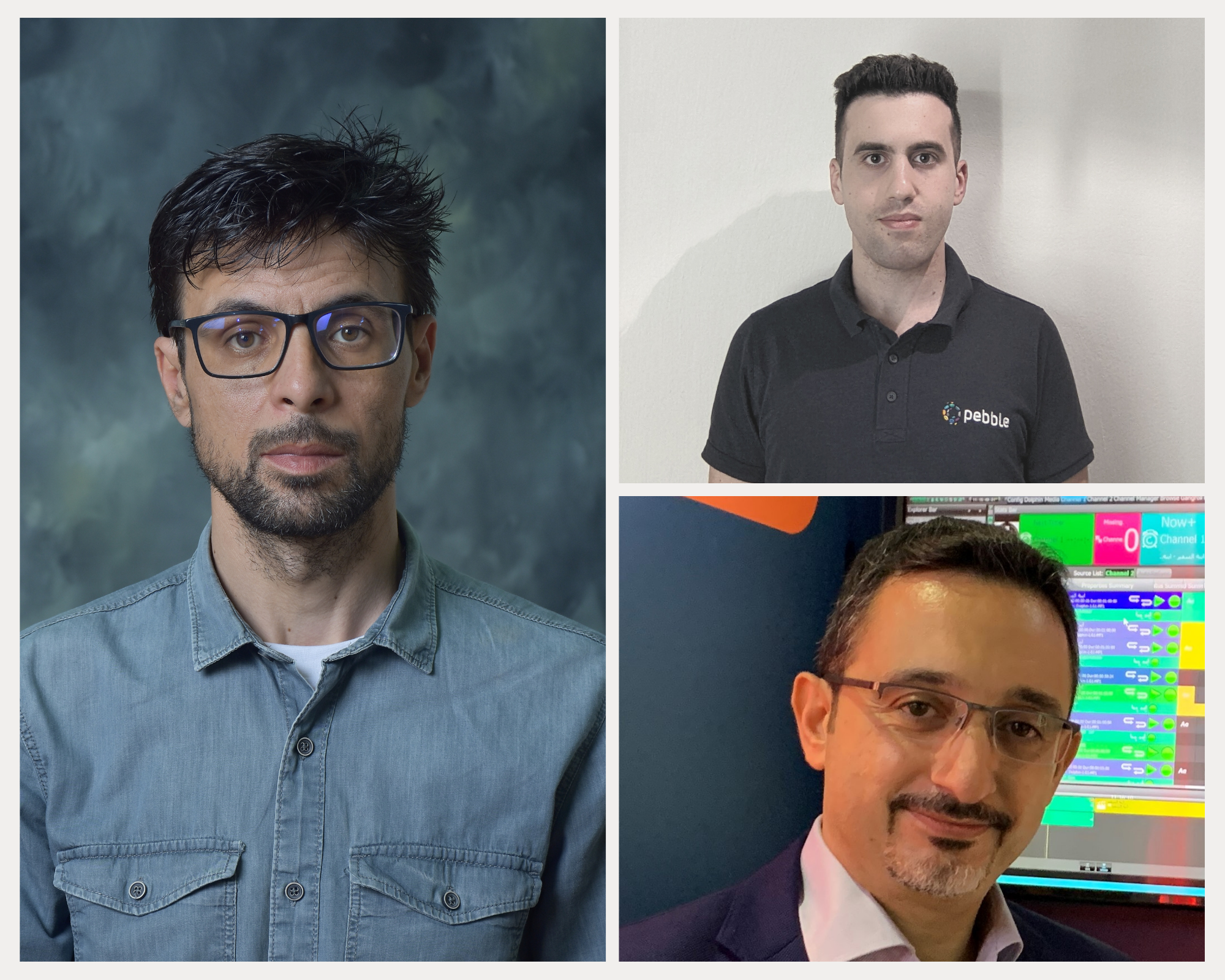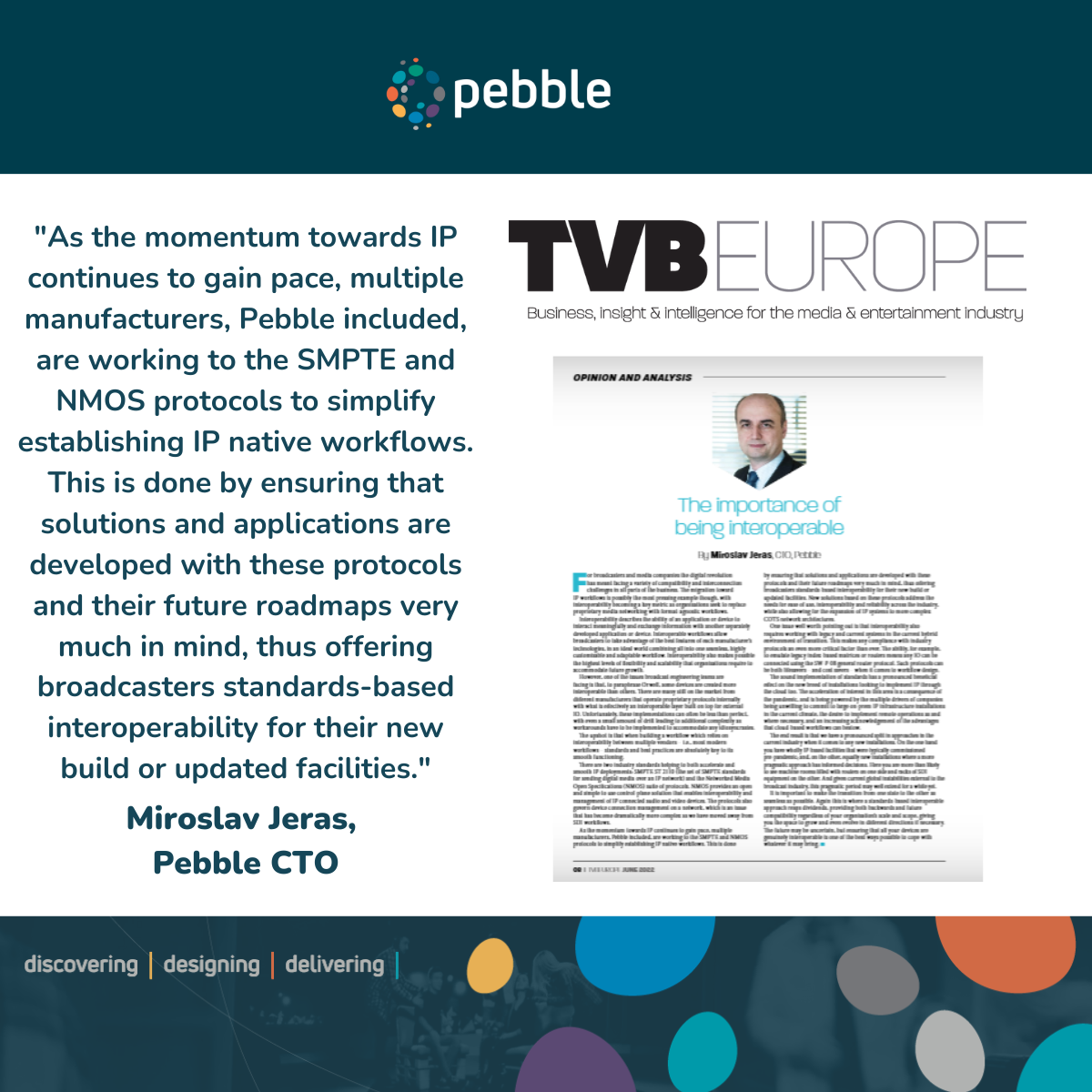Director of Operations, Yucel Timur, contributes to this Euromedia Survey with comments in the REMOTE section on Page 13, ON-PREM section on Page 14 and TRAVEL & IMPACT on Page 16.
Read the contributions HERE.
For technical support please call
+44 1932 333 790or email our support team
E-MAILFor technical support please call
+1 720 638 7171or email our support team
E-MAIL
Director of Operations, Yucel Timur, contributes to this Euromedia Survey with comments in the REMOTE section on Page 13, ON-PREM section on Page 14 and TRAVEL & IMPACT on Page 16.
Read the contributions HERE.

A hybrid approach may work best as broadcasters can deploy cloud technologies on site at a pace that suits them and take their first step in the migration journey to an eventual cloud deployment, minimising the risk.
We recently joined the Amazon Web Services (AWS) Partner Network and completed the Foundational Technical Review program for our Virtualised Playout solution, enabling us to identify and implement AWS well-architected best practices and ensure the best possible customer experience.
We know broadcasters have multiple types of channels under their umbrella, such as non-time-critical content made up of pre-prepared and pre-rendered graphics, with simple automation, where content is uploaded once into the cloud and stays there. On the other end are channels delivering quality live content, that are time-critical with HD or UHD resolutions, complex real-time graphics and even HDR content. So here, committing fully to the cloud may make less sense financially.
Read the article in full HERE.

Key Appointments Expand Customer Support Operations
Weybridge, Surrey, UK, 16 June 2022: Pebble, the leading automation, content management and integrated channel specialist, has today announced the expansion of its UAE team, adding further support and project implementation capacity in the region with three key appointments. Building on its strong position in the Middle East market, the regional team will benefit from the addition of proven skill sets and experience, enabling the business to build on its recent growth momentum.
The new appointments include the promotion of Ziad Sanbar to Regional Solutions Manager. An experienced Senior Engineer with a strong track record of success within Pebble and in the wider broadcast media industry, Ziad has been with Pebble in the UAE since 2011, when he joined as a customer support engineer.
Belkacem Hennane joins Pebble as Customer Fulfillment Engineer having spent the previous 12 years at Tassili Media Production, where most recently he served as Technical Operations Manager. A multi-skilled IT and operations manager with good all-round supervisory and technical expertise, he has also worked for organisations including Etisalat, LounaVision and Big Numerique.
Christian Mesmar, a Product Trainer and Customer Fulfillment Engineer, will relocate from Pebble in the UK to the UAE. Working at Pebble for nearly six years, he operates simultaneously as a trainer and projects engineer, delivering solutions for playout, ingest and media management at several high-profile television networks and service providers such as AMC, SES, Al Jazeera, MBC, Fox and various national broadcasters.
“Pebble has developed an enviable track record of success and growth in the Middle East and our solutions control more than 400 channels across 17 countries at around 70 sites across the region,” said Samir Isbaih, Pebble’s VP Sales, Middle East and APAC. “With new customers such as CNBC Arabia and many new generation Pebble Automation projects at Bahrain TV and Al-Sharqiyah (part of Sharjah Broadcasting authority) adding significant momentum to the business, building the team to demonstrate our continuous commitment to our customers in the region has been an important objective and we are delighted to welcome our new colleagues.”
Yucel Timur, Director of Operations at Pebble commented: “Expanding our presence in the Middle East with the arrival of, Belkacem and Christian based out of the UAE, and the promotion of Ziad into a senior role, is excellent news for our business and our customers in the region. Their expertise and experience will extend our capability to provide top-quality support as we continue to deliver innovation across the market, as well as demonstrating Pebble’s commitment to having a global team, closer to our customers.”
Notes:
Image: Left to right (going clockwise): Belkacem Hennane, Christian Mesmar and Ziad Sanbar (bottom left hand corner)
### ENDS ###

Full page article featured in the June 2022 issue of TVBEurope
For broadcasters and media companies the digital revolution has meant facing a myriad of compatibility and interconnection challenges in all parts of the business. The migration toward IP workflows is possibly the most pressing example though, with interoperability becoming a key metric as organisations seek to replace proprietary media networking with format-agnostic workflows.
Interoperability describes the ability of an application or device to interact meaningfully and exchange information with another separately developed application or device. Interoperable workflows allow broadcasters to take advantage of the best features of each manufacturer’s technologies, in an ideal world combining all into one seamless, highly customisable and adaptable workflow. Interoperability also makes possible the highest levels of flexibility and scalability that organisations require to accommodate future growth.
However, one of the issues broadcast engineering teams are facing is that, to paraphrase Orwell, some devices are created more interoperable than others. There are many still on the market from different manufacturers that operate proprietary protocols internally with what is effectively an interoperable layer built on top for external IO. Unfortunately, these implementations can often be less than perfect, with even a small amount of drift leading to additional complexity as workarounds have to be implemented to accommodate any idiosyncrasies.
The upshot is that when building a workflow which relies on interoperability between multiple vendors — i.e., most modern workflows — standards and best practices are absolute key to its smooth functioning.
Read the article on Page 8 in full HERE.